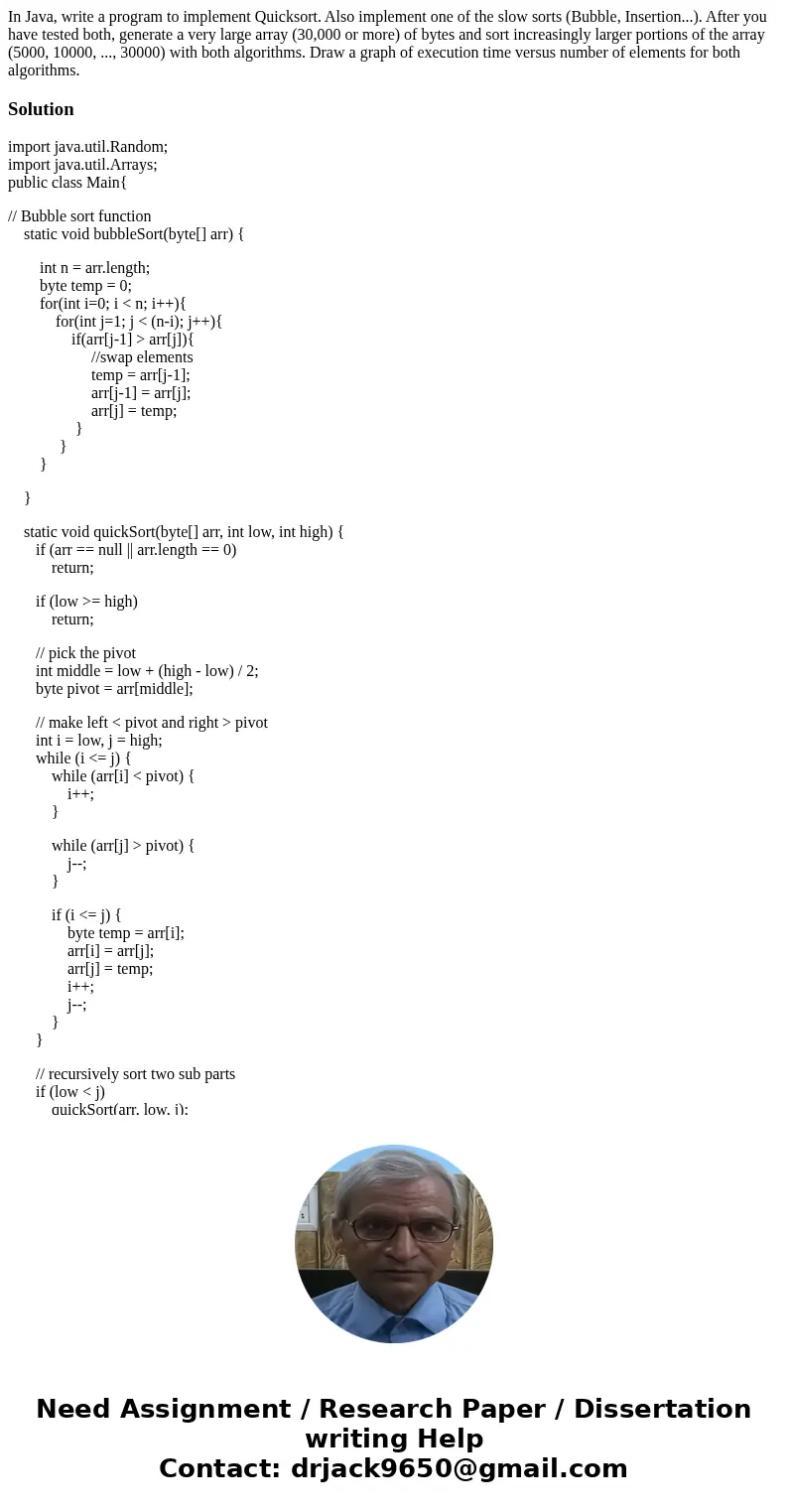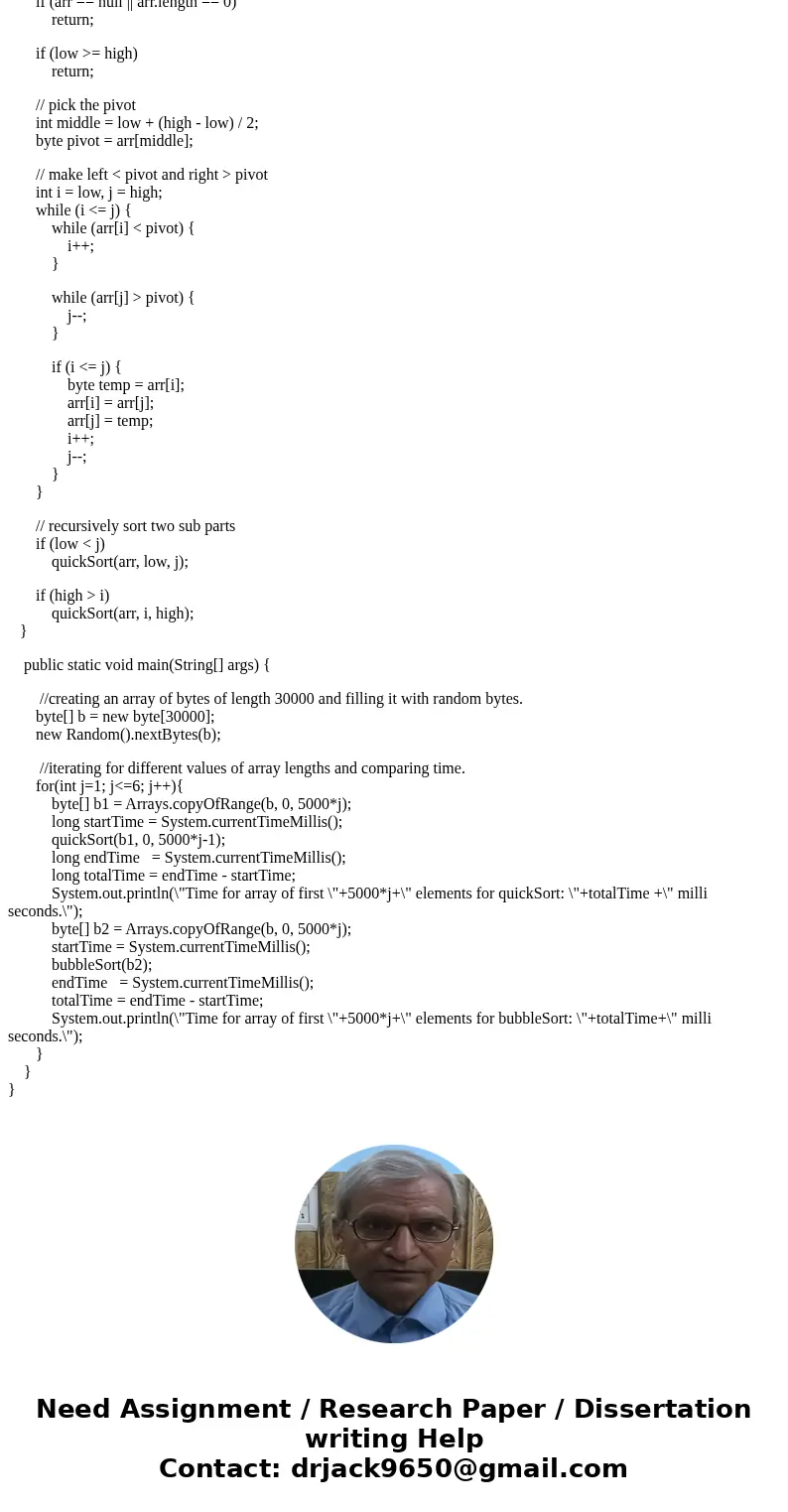In Java write a program to implement Quicksort Also implemen
In Java, write a program to implement Quicksort. Also implement one of the slow sorts (Bubble, Insertion...). After you have tested both, generate a very large array (30,000 or more) of bytes and sort increasingly larger portions of the array (5000, 10000, ..., 30000) with both algorithms. Draw a graph of execution time versus number of elements for both algorithms.
Solution
import java.util.Random;
import java.util.Arrays;
public class Main{
// Bubble sort function
static void bubbleSort(byte[] arr) {
int n = arr.length;
byte temp = 0;
for(int i=0; i < n; i++){
for(int j=1; j < (n-i); j++){
if(arr[j-1] > arr[j]){
//swap elements
temp = arr[j-1];
arr[j-1] = arr[j];
arr[j] = temp;
}
}
}
}
static void quickSort(byte[] arr, int low, int high) {
if (arr == null || arr.length == 0)
return;
if (low >= high)
return;
// pick the pivot
int middle = low + (high - low) / 2;
byte pivot = arr[middle];
// make left < pivot and right > pivot
int i = low, j = high;
while (i <= j) {
while (arr[i] < pivot) {
i++;
}
while (arr[j] > pivot) {
j--;
}
if (i <= j) {
byte temp = arr[i];
arr[i] = arr[j];
arr[j] = temp;
i++;
j--;
}
}
// recursively sort two sub parts
if (low < j)
quickSort(arr, low, j);
if (high > i)
quickSort(arr, i, high);
}
public static void main(String[] args) {
//creating an array of bytes of length 30000 and filling it with random bytes.
byte[] b = new byte[30000];
new Random().nextBytes(b);
//iterating for different values of array lengths and comparing time.
for(int j=1; j<=6; j++){
byte[] b1 = Arrays.copyOfRange(b, 0, 5000*j);
long startTime = System.currentTimeMillis();
quickSort(b1, 0, 5000*j-1);
long endTime = System.currentTimeMillis();
long totalTime = endTime - startTime;
System.out.println(\"Time for array of first \"+5000*j+\" elements for quickSort: \"+totalTime +\" milli seconds.\");
byte[] b2 = Arrays.copyOfRange(b, 0, 5000*j);
startTime = System.currentTimeMillis();
bubbleSort(b2);
endTime = System.currentTimeMillis();
totalTime = endTime - startTime;
System.out.println(\"Time for array of first \"+5000*j+\" elements for bubbleSort: \"+totalTime+\" milli seconds.\");
}
}
}


 Homework Sourse
Homework Sourse